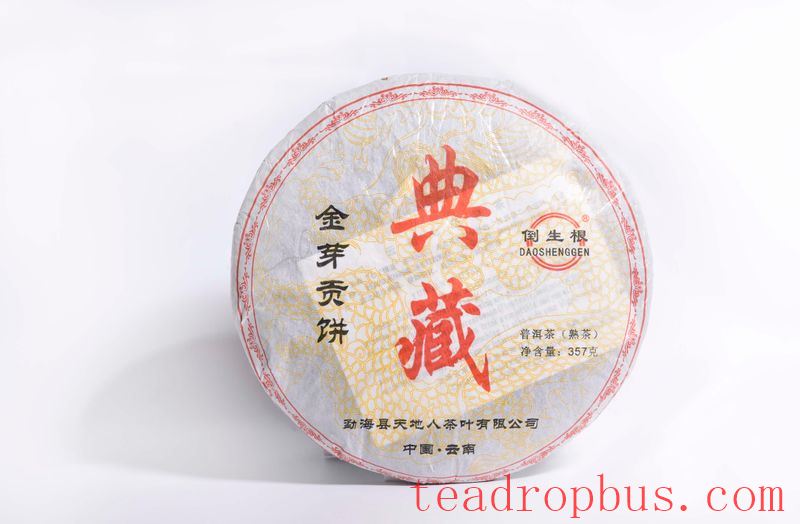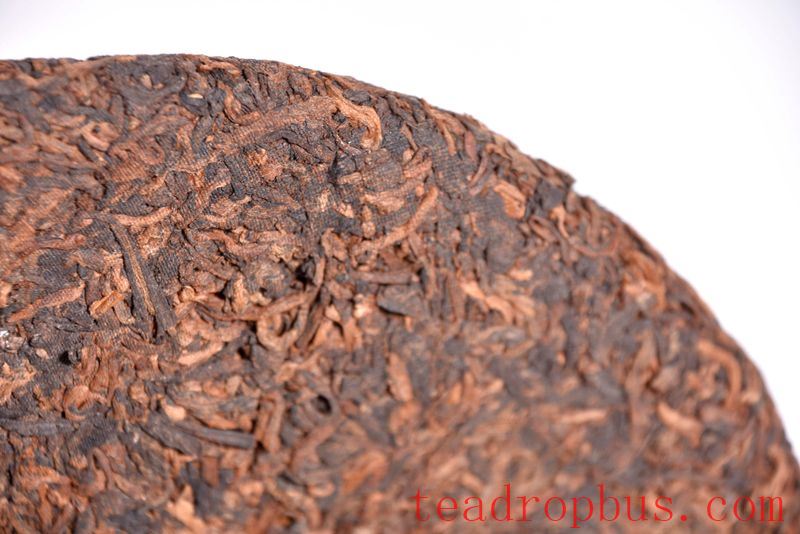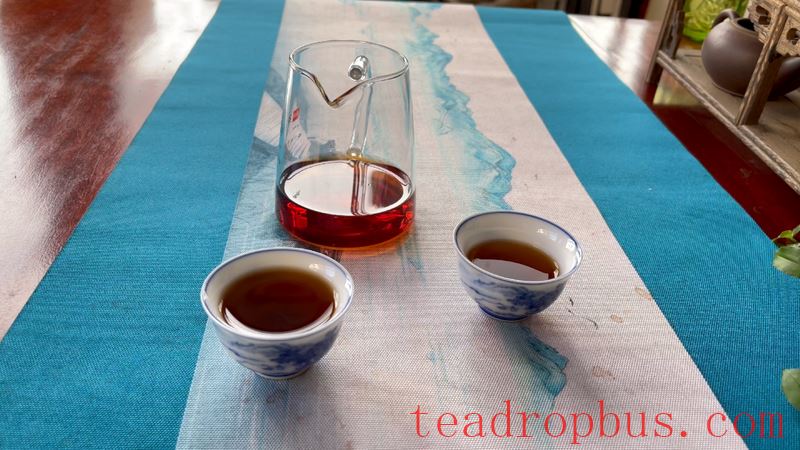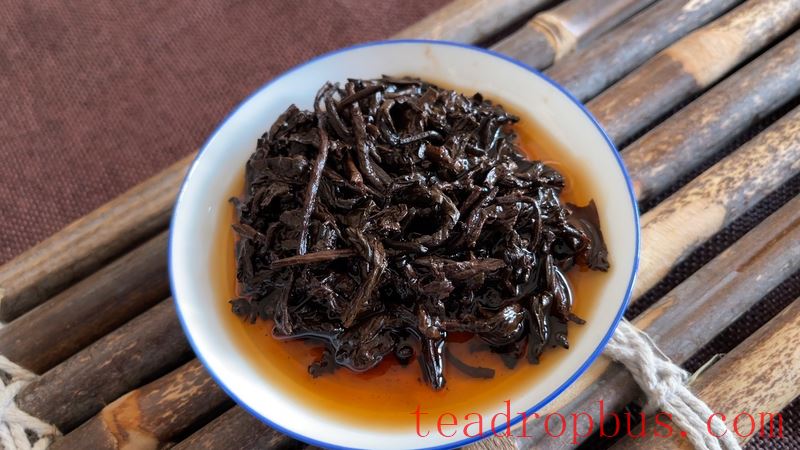Pu'er ripe Tea is made from Yunnan large-leaf sun-dried Green Tea as raw material, processed through pile fermentation and other techniques. Pu'er ripe tea has a dark brown color, a pure and mellow taste, and a unique aged aroma. Its mild nature helps nourish the stomach, protect it, warm it, lower blood lipids, and aid in weight loss among other Health benefits.

To enjoy high-quality Pu'er ripe tea, you need to learn how to select it properly to avoid buying inferior products. Now, let's explore the methods for selecting Pu'er ripe tea.
How to Select Good Pu'er Ripe Tea
01. Observe the Dry Tea Appearance
Generally, good ripe tea, whether loose or compressed, should display: tightly bound leaves, heavy and solid, complete with few breaks, visible down hairs, a uniform color, a certain degree of moisture and brightness, no non-tea inclusions, and good purity.
Poor quality ripe tea, due to inadequate fermentation or processing, may exhibit coarse, loose, and fragmented leaves.
02. Examine the Liquor Color
The liquor color is the hue produced by water-soluble pigments dissolved in water. To evaluate the liquor color, consider its depth, clarity, and brightness.

High-quality ripe tea should have a pure, bright, and transparent liquor color—such as deep red and transparent, bright red and luminous, or wine red and transparent.
Poor quality ripe tea will have a shallow or deep color that is not clear or bright, making it difficult to see through the liquor layer. There may even be sediment or fine floating particles in the liquor.
03. Smell the Aroma
To identify the aroma of ripe tea, first determine if the fragrance type is correct. Then, compare the purity, intensity, and longevity of the aroma.
Ripe tea aromas typically include aged, sweet, sugary, ripe, jujube, ginseng, woody, and more.
High-quality ripe tea should have a rich, high, and persistent aroma. An aroma that is high but not persistent or low and coarse indicates poor quality. If you detect smoke, burnt, sour, stale, moldy, old, or any other off-odors in ripe tea, it is of inferior quality.

04. Taste the Flavor
All teas are flavorful beverages, and a pleasant taste is one of the critical factors determining their quality.
To judge the flavor of ripe tea, first, distinguish if the taste is pure. Pure flavors can be judged based on their strength, intensity, and harmony. Impure flavors may produce sour, bitter, or unpleasant sensations.
Secondly, high-quality ancient tree ripe tea should provide a pleasant aftertaste, salivation, or a lingering fragrance.
05. Examine the Leaf Base
After brewing, the leaves unfurl, revealing their age, color, uniformity, and the reasonableness of the processing.
High-quality ripe tea should have a pure aroma, regardless of whether it is aged, jujube, camphor, or any other scent, without any impurities or off-odors.

The liquor from high-quality ripe tea should be pure. After drinking a cup of ripe tea, your mouth feels comfortable and natural, with a fresh and moist sensation on the tongue and throat. If you experience unpleasant sourness, numbness, dryness, or an itchy throat, these are signs of poor quality tea.
The texture of the liquor from high-quality ripe tea is comforting to the stomach and body. Upon tasting, the liquor should feel smooth, viscous, and sweet, without any dryness in the throat, providing a very pleasant mouthfeel.
The thickness and smoothness of the liquor from high-quality ripe tea should be smooth, viscous, and full-bodied, similar to the sensation of drinking rice soup with rich flavor. Smoothness can develop over time, but viscosity and fullness require high-quality raw materials. Even after years, poor quality raw materials might become smooth but lack richness.